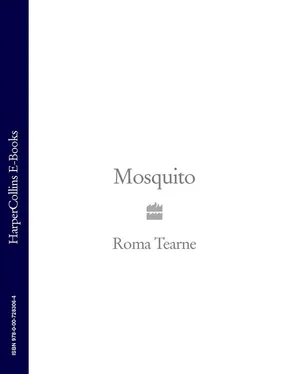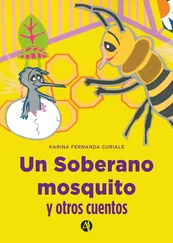‘But you paint,’ said Theo, ‘ you still look.’ And he thought how it was, that this beautiful place, with its idyllic landscape of sea and sky and glorious weather, had lost its way. Both through the lack of human intervention and, also, because of it. How many generations did it take before all the wondrous things of the island could be described again? Twenty years? Fifty years? Would a whole generation have to grow and be replaced before that could happen?
‘You must never stop looking,’ he said firmly. ‘Never. Even when it becomes hard you must never stop. Also, you are a woman. It is important for women to do something about what they see. Only then will there be change. My wife was like that, she would have loved your drawings.’
‘Your wife? Where is she?’
‘She’s dead,’ said Theo.
He kept his voice steady; surprisingly he did not feel the usual sharp stab of bitterness. The beam of sunlight had moved and now shone against the edge of the huge mirror that stood above the Dutch sideboard, reflecting the fine golden sea dust that foxed its surface. Sugi came in with some mangoes. The afternoon heat, dazzling and yellow, was at its worst. It stood in abeyance outside the open door.
‘What was her name?’ asked Nulani, after Sugi had gone.
‘She was called Anna.’
He noticed they had both slipped into their native Singhalese. Was pain easier to deal with in one’s mother tongue? Nulani was thinking too.
‘My brother has a long scar on his leg,’ she said.
When he cut it he had cried. She could remember how his leg had bled, she told Theo. The blood had poured out like rain.
‘There was no blood when Father died. After the ambulance took him away to the mortuary I went back to look at the road. I wanted to see the black dust. It was his dust, his body dust. That was all there was of him.’
She had rubbed the palm of her hand in it, she told Theo, until someone, some neighbour, had pulled her away. She still knew the exact spot where it was. There was a traffic island there now. It was her father’s headstone. It was her scar.
‘You have a scar, no?’ she said. ‘While I have been drawing you I have felt it. It is all over you, no?’ She traced the shape of his spine in the air. ‘It is under your skin, between the backbones,’ she said.
‘It was a long time ago now.’
‘Is that why you came back?’
‘No, yes … partly.’
‘It will get better here,’ said Nulani softly.
She was too young to give him firm comfort but her certainty, though fragile, comforted him anyway. He was twenty-eight years older than her. Mango juice ran down her arm as she ate. Her lips were moist. Anna would have loved a child, he thought. Her generosity would have rushed in like waves, enveloping Nulani. Why had they never come here when Anna was still with him? Fleetingly, he thought of his old home in London, with its books and rugs and old French mirrors that filled the apartment with the light that was always in short supply. How different it was now, where they shuttered out the light instead.
The sun had moved away from the glass as they finished their meal and Theo lit a cigar. Nulani was fidgeting, wanting to get on. She remembered she had to go home. Her uncle, her mother’s brother, was coming to see how his niece and nephew were. He was all they had for a father these days.
‘Sugi will clear the space at the back for you to paint,’ said Theo finally. ‘You can come any time you like, but I shall be in Colombo tomorrow.’
He waved, watching her walk away, the dust from the garden washing brown against her open-toed sandals.
* * *
After he had cleared the room Sugi polished the floor with coconut scrapings. He rubbed as hard as he could, using first his left and then his right foot until the house smelt of it and the floor shone like marble. Then he went outside into the backyard and chopped open a thambili , an orange king coconut, and drank from it. After that he went back to work. There were several jobs he hoped to finish before Mr Samarajeeva returned from Colombo. He liked to surprise him with some small task or other well done. Last time it had been the fixing of the stone lions to the garden wall. The time before that he had painted the shutters.
Mr Samarajeeva was always weary when he returned from Colombo. He looked as he did when Sugi had first seen him, on the day he came to live here, walking from the station with his bags, a piece of paper in his hand, the address of the beach house on it. He had asked for directions and Sugi had brought him to the house, and stayed ever since. At the time he thought Mr Samarajeeva was a foreigner, in his fine tropical suit, with his leather suitcases and his hat. But then Theo had spoken to him in their mother tongue with such fluency that Sugi had grinned.
‘I have been away a long time,’ said Mr Samarajeeva. ‘But my Singhala isn’t bad, is it?’
He had wanted Sugi to work with him, help him set up his life here in the house. He would need some cooking, some domestic chores and some house maintenance. Could Sugi manage all that? Sugi could. As there was no one else to talk to, Mr Samarajeeva talked to Sugi. When his things arrived from London he unpacked them with Sugi and talked about his life there. He unpacked several framed photographs. They were of the same woman, blonde, curly-haired, smiling at the camera.
‘My wife Anna,’ he told Sugi.
Then he unpacked his books. There seemed to be hundreds of books. There were other things from his old life. Later Sugi found out more about his wife. He tried to imagine the type of woman who had collected all these things. The mirrors, the plates, the cutlery. She must have been a fine woman, thought Sugi. When he found out Mr Samarajeeva was famous, the books he had written, and soon the film, he felt it his duty to warn him. These were troubled times. Envy and poverty went hand in hand with the ravaged land, he said. Even though he was a Singhalese, Mr Samarajeeva should be careful. His sympathy for the Tamil children was too well known. The house should be made more secure. Locks were needed for the shutters and the doors. The garden wall needed to be repaired in order to keep intruders out. Sugi made a list. Theo smiled lazily. He did not stop Sugi but he did not care much either.
‘Sir,’ said Sugi genuinely puzzled, ‘you don’t understand. There can be sudden outbreaks of trouble here. When you least expect it. You must be careful. People know who you are and they talk too much in these parts. It’s not as you remember, no?’
All this was before the Mendis girl started visiting. Sugi knew the family.
‘The boy is the only son, Sir,’ he said. ‘He is arrogant, and clever. There is talk of him getting a British Council scholarship in spite of what happened to the father. The father was warned several times, you know. Before they killed him, they warned him. But he was a fearless man who spoke out against the injustice done to the Tamils long ago. So, even though he was warned, he ignored the warnings.’
He paused, remembering.
‘He was an educated man, too. He wasn’t a fool. But in the end it did him no good. He was very handsome, and he had strong principles. Always campaigning for the Tamil underdog. What they did to him was a terrible thing. But you know, Sir, he should have been more careful. Someone should have advised him. That silly wife of his, someone.’
‘And the girl?’ asked Theo.
‘Oh, the girl looks just like him,’ said Sugi, misunderstanding. ‘But you know the whole family is being watched now. They were never popular. And the boy is very selfish. He is only interested in himself.’
It was clear Mr Samarajeeva was not interested in the boy, thought Sugi, disapproving of the girl’s visits.
Читать дальше












